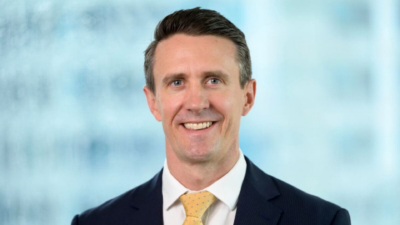Family offices becoming bigger, better, more independent: Deloitte Private
Family offices will manage a collective $5.4 trillion and swell in number to nearly 11,000 globally by 2030, according to a Deloitte Private report that also surveyed emerging trends among 354 single family offices overseeing a collective US$708 billion of assets.
But with that increased size and complexity comes the need for family offices to adopt different organisational structures and move beyond being embedded in the family itself, with 66 per cent of respondents saying that as family offices grow they will become more professionally managed (66 per cent), and that their portfolios will see greater diversification across asset classes and geographies (55 per cent).
“Over time, family offices will become more institutionalised and hire more professionalised staff,” the chief executive officer of one family office told the survey. “Everything we do is run in an institutional way. We come from institutional backgrounds having worked in big banks, and we try to replicate what has worked for others.”
And as a family’s business, investments and affairs become more globalised, so to do the requirements of its family office. A trend that few family offices envisioned in previous surveys is towards the establishment of multiple branches both locally and overseas, with the ability to work remotely leading to a diminished need for personnel to sit in a stationary office and allowing family offices to “tap the best available talent from around the world”.
“I have been in the family office business for over 35 years and have seen huge changes in the space over this time,” Keith Rook, president of Weiler Arnow Management Co, told the survey. “Things are becoming more institutionalised. Family offices are hiring top-quality people. They are really focusing on their team, their investment in technology, and in getting outside consultants and top-quality managers. We have also seen surges in wealth creation, which I believe will lead to further growth in the space.”
But when it comes to establishing new branches, not everybody wants to wander far from home. Seventy two per cent of North American family offices set up their second branch in North America, which Deloitte Private believes “could be a consequence of increasing geopolitical insularity in North America, along with a challenging economic climate in Europe”. Nearly 90 per cent of European family offices opted to open new branches on the continent rather than further afield, but APAC family offices are “bucking the trend and rapidly internationalising”, with 38 per cent setting up shop in North America and 23 per cent in Europe – a notable increase on prior years, but still one skewed to relatively stable regions.
Still others, eyeing increased geopolitical and macro uncertainty and the opportunities on offer outside the Anglosphere are pursuing a bigger geographical footprint.
“We live in an unpredictable world and having resilience and redundancy is important, both in terms of the tasks we perform and the teams we represent,” one family office CEO told the survey. “Increasingly, part of what we think about is what can potentially go wrong and whether we are prepared if it does, even if it is the most extreme case. We believe that we live in a world where we need to be prepared.
“In turn, we wanted to set up another branch. We wanted somewhere we felt comfortable, and when we looked around, we did not feel Europe was the best place given its long-term challenges with declining populations and wealth going in the wrong direction. Conversely, in Asia, populations are growing, and wealth is going in the right direction. In the end, we chose the region because we have an interest in Southeast Asia from a climate perspective.











